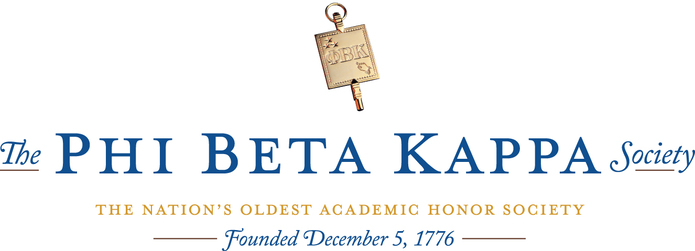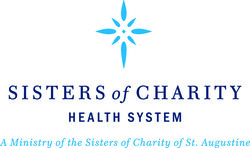Tuesday, May 07, 2019
Democracy... Is that still a thing?

City Club CEO Dan Moulthrop delivered the keynote at the Cleveland Association of Phi Beta Kappa annual awards luncheon on May 5, 2019.
The somewhat cheeky title we hit upon for this speech is “Democracy… is that still a thing?” and I realize that it may have different meanings for many of you. I want to ask you, just by a quick show of hands—raise your hand if you think it’s essential that we live in a democracy…
It’s interesting, that’s a question that has been asked in surveys since the 1930s. Back then, 90 years ago, close to 75 percent of Americans would have replied yes. By the 1980s, only 30 percent of Americans were saying that democracy was essential. A few years ago, two researchers, one from Harvard, one from the University of Melbourne began looking at something similar. Yascha Mounk and Roberto Stefan Foa asked millennials if they agreed with a set of statements related to democracy. Only 19 percent agreed that “military takeover is not legitimate in a democracy.” That of course implies that more than 80 percent—4 in every 5 people—would be ok with a government takeover by the military. They also asked about elections. A quarter of the respondents agreed with the following statement: “choosing leaders through free elections is unimportant.”
I mean, this is here. In America. That survey was done in 2017.
There’s a story I love, a story about the framers of the constitution. I don’t know how many of you have read or learned very much about that extraordinary effort—at your age, I was spending a lot more time reading novels than history, but probably a lot more time than that getting in and out of trouble. The arguing and drafting of the US Constitution took the entire summer of 1787. The delegates debated every aspect of every article and branch of government. When they had finally concluded and agreed on a draft they would ask the states to ratify, it was the final day, and Ben Franklin is leaving the convention, and people want to know what they came up with. This was, after all, the big news of the day, bigger than the Mueller Report. What is it, doctor? they asked, a republic or a monarchy? After all, it wasn’t assumed that we’d become a democracy. Many people wanted George Washington to be crowned. Here’s what Franklin said:
“A Republic. If you can keep it.”
So, this is a question I’ve been thinking about a lot lately. What does it take to keep a republic? And what role do the liberal arts play in that? After all, that’s what we’re here to celebrate, right? Your many accomplishments and the importance of the liberal arts.
Some of you may understand this well already, but it’s worth remembering that when we refer to liberal democracies, we’re not talking about Liberals or Democrats; we’re talking about democracies that are committed to certain individual freedoms, rule of law and free and fair elections. We’re sometimes also call them Western democracies because between the US and Western Europe, we’ve got a lot of them. For much of my lifetime, there was a shared sense that the liberal democracy was the inevitable final step in the evolution of the nation state. Eventually, the theory went, any nation that opened its markets and moved toward capitalism would find that rule of law is essential to functioning capitalism, that citizens should be granted certain freedoms, civil and human rights, and that free and fair elections were integral to this process and a universally understood to be vital for human welfare.
I grew up in simpler times. Then, Western liberal democracies stood clearly in opposition to the Soviet form of communism, which failed 30 years ago, and meanwhile, the Chinese form of communism had kept China’s economy under-developed. Capitalism and liberal democracy was working better.
Today, we are seeing the emergence of illiberal democracies—places like Hungary and Turkey and others where the state has the trappings of democracy without the commitment to individual freedoms. Viktor Orban, the Prime Minister of Hungary, is the first official to embrace this label and frame it as a public good. In 2014, he told an audience in Transylvania, “the new state that we are building is an illiberal state, a non-liberal state. It does not deny foundational values of liberalism, as freedom, etc.... It does not make this ideology a central element of state organization, but applies a specific, national, particular approach in its stead.” Since then, Orban has rewritten the constitution to remove checks and balance and centralize power and continued to advocate for a nationalist, Christian form of government, explicitly rejecting individual freedom in favor of stronger state control and predicting the European Union—the 20th century’s great collaboration of Western European democracies—will fail.
Orban should know better. He studied political philosophy at Oxford on a scholarship paid for by the Soros Foundation. His party was originally a liberal youth party that opposed communism. Today, it is nationalist, anti-immigrant, and populist.
Hungary is one nation where the Prime Minister is a populist and is actively altering the structure of the state, but the signs of this same kind of nationalism are everywhere—in Turkey, Italy, Germany, the UK, France, and, here in the United States. There’s a mainstream conversation that has unfolded over the last two years about whether or not it’s a bad thing to be a “nationalist” and about whether the economic success of our trading partners is of benefit to us. About whether international collaboration and shared economic interest—the very things that make it less likely another World War could occur—whether that kind of shared economic interest is a good thing.
The Greeks invented this concept of the Liberal Arts. These were the fields of study that would prepare a citizen to participate in civic life—public debate, voting, serving on a jury, and the occasional elected leadership role. Our definition of the liberal arts is broader than the Greeks; where they might have leaned on philosophy, logic, and rhetoric, we’re apt to prize history, literature, religion, social sciences, math and natural sciences, and, of course, the fine arts themselves. Why should these topics matter?
My undergraduate degree was in English Literature. That was my toughest subject in high school. I couldn’t write as well as my peers, my analysis was superficial and often far too literal. But in college, I was drawn to literature classes. I don’t know if anyone still does this, but in 1992, when I entered college, I was undecided. And about a year and a half later, trying to figure out what major to declare, I looked at my transcript and realized I was halfway through a BA in English, and I was actually doing fairly well at it. So I leaned in and dug in, and though I never read Spenser (even though I was supposed to), I did enjoy Chaucer a great deal, and my true love was poetry.
I keep a few poems committed to memory because they ground me, in the same way certain prayers ground us to our humanity and connect us to one another. Haiku are the easiest. Here’s one of my favorites:
O ant,
climb Mount Fuji,
But slowly, slowly
In translation, we lose the 5-7-5 syllable pattern, but it resonates. Even the ant, one of our tiniest creatures, can take on what might seem insurmountable. Progress is incremental, but it happens, all the same. And between the ant and Mount Fuji—the tiny and the enormous—is the whole of our existence, the expanse of what we can see.
Here’s another. It’s explicitly religious, written by Gerard Manley Hopkins who is often described as a “tortured Jesuit”—deeply committed to his faith yet questioning it all the time. He reinvented rhyme and blew poetry and language apart in a way every bit as dramatic as Shakespeare or Jay-Z. In this poem he’s watching a bird in flight, a falcon, and seeing in it not just evidence of God’s existence, but also Christ’s love and also the fact that the everyday, quotidian world around us is beautiful enough to make us tremble, if we open ourselves to the experience.
The Windhover
I caught this morning morning's minion, king-
dom of daylight's dauphin, dapple-dawn-drawn Falcon, in his riding
Of the rolling level underneath him steady air, and striding
High there, how he rung upon the rein of a wimpling wing
In his ecstasy! then off, off forth on swing,
As a skate's heel sweeps smooth on a bow-bend: the hurl and gliding
Rebuffed the big wind. My heart in hiding
Stirred for a bird, – the achieve of, the mastery of the thing!
Brute beauty and valour and act, oh, air, pride, plume, here
Buckle! AND the fire that breaks from thee then, a billion
Times told lovelier, more dangerous, O my chevalier!
No wonder of it: shéer plód makes plough down sillion
Shine, and blue-bleak embers, ah my dear,
Fall, gall themselves, and gash gold-vermilion.
You have to see this poem in print to appreciate what it does to language and rhythm, with internal rhymes and assonance dominating the end rhyme. It’s a poem I have returned to again and again over the last 25 years or so, when I first read it. I recite snatches to myself on a regular basis, and often the whole thing, because having a beautiful poem stored in your brain is a gift to yourself. You get to unfold it and feel its beauty whenever you like. And every time you recite it to yourself, aloud or silently, you will see and feel new facets of the poem, deeper meanings, new ways in which it reflects off of your own experience as you age.
Now, my own relationship with Christianity is complicated—I’m Jewish myself—but I love this poem, and I think it gets to specifically why the liberal arts, the humanities, are so important to me. What Hopkins is speaking to here is our wonder about the world, about how we got so lucky to be alive on such a beautiful planet, sharing it with such beautiful creatures, which ultimately, if you let it, makes you ask yourself what’s it all for? Why are we here and what are we meant to do while we are here?
For me, this poem reminds me that these questions are central to the human experience and at the heart of the religious experience that lies at the heart of many people’s lives. It connects me to a universal yearning that we all have to know the unknowable and reminds me how deeply felt religious beliefs are for some people, and how those beliefs can drive everything in someone’s life—the decisions they make for their families, how they vote, whether they run for office, the platform they might run on, the policies they might advocate. These might be the drivers for someone on the other side of any political argument you might be having.
Choose your branch of the liberal arts, and you’ll begin to see how they might prepare you for the civic life that is inevitably ahead. The evolutions in our scientific understanding of the world around us and the world that is possible will shape our future. And if we cannot grasp how artificial intelligence, global climate change, or genetics work, we won’t be able to form an adequate opinion about policies and regulations in these areas that will affect our lives. If we do not spend enough time with our own history or our world’s history, we cannot adequately understand the roots of the injustices that shape our communities—the poverty that is connected to policies that shaped our nation from its founding. And to return to the Greeks for a moment, rhetoric and logic are still vital. We must be able to stand up and speak. We must be able to listen closely. We must be able to spot logical fallacies and recognize straw man reasoning, what-about-isms, and the ad hominem attacks that populate so much of our political discourse.
So, let me return to someone I mentioned before, someone who was absurdly well grounded in a liberal arts education. Ben Franklin. What does it take to keep a republic?
We are so lucky to live in this nation, so lucky to have inherited this republic from the framers and the generations that followed that kept it strong, that fought for it, that died to protect it. So, yes, Democracy is still a thing. It’s this beautiful thing that protects our freedoms, our rights to private property, our freedom of speech, our right to criticize our government and our elected officials, our access to the ballot box, our right to run for office, our right to protest, our right to start a business, our right to pay taxes so that we can all share in the costs of civilization.
We are not guaranteed this democracy just because we were born into it or happen to live here. We don’t get to keep the republic just because we like it. We only get to keep it if we protect it, if we actively prepare ourselves to participate and if we actively encourage others to do the same.
I want to speak directly to you students for a moment. I am so proud to be here with all of you, so honored to get to play a small role in celebrating your successes today and all you will achieve in the future. But this is really about more than that. We all, all of us here, all of the people in your community that you love and admire and who love and admire you, we are expecting great things from you. If there’s a charge to you, it’s this: as you go off to college, have fun, take great classes, learn as much as you can, but do so to prepare yourself to do your part to keep this republic strong. Yes, as Jefferson told us, democracy is an inalienable right—it’s life, liberty, and the pursuit of happiness. But we only get to access that right if we accept the responsibility to protect it.
Again congratulations to all of you, and thank you.





